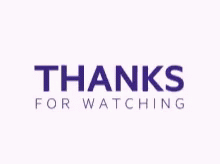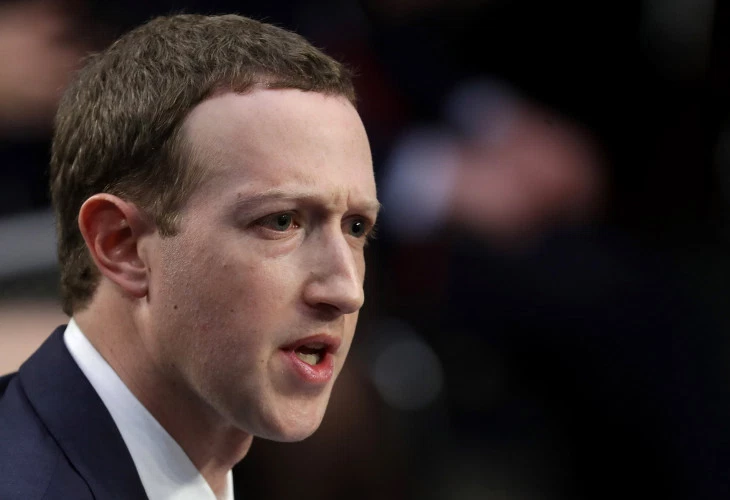## In the wake of the Cambridge Analytica embarrassment, news articles and reporters have concentrated on what Facebook thinks about us. A great deal, it turns out. It gathers information from our posts, our preferences, our photographs, things we write and erase without posting, and things we do while not on Facebook and notwithstanding when we're disconnected. It purchases information about us from others. Furthermore, it can surmise significantly more: our sexual introduction, political convictions, relationship status, tranquilize utilize, and other identity qualities - regardless of whether we didn't take the identity test that Cambridge Analytica created.
In any case, for each article about Facebook's unpleasant stalker conduct, a huge number of different organizations are breathing an aggregate moan of help that it's Facebook and not them in the spotlight. Since while Facebook is one of the greatest players in this space, there are a large number of different organizations that government operative on and control us for benefit.
Source
Harvard Business School educator Shoshana Zuboff calls it "observation free enterprise." And as frightening as Facebook is ending up being, the whole business is far creepier. It has existed in mystery unreasonably long, and it's up to administrators to compel these organizations into the general population spotlight, where we would all be able to choose if this is the way we need society to work and - if not - what to do about it.
There are 2,500 to 4,000 information merchants in the United States whose business is purchasing and offering our own information. A year ago, Equifax was in the news when programmers stole individual data on 150 million individuals, including Social Security numbers, birth dates, locations, and driver's permit numbers.
You unquestionably didn't give it consent to gather any of that data. Equifax is one of those a large number of information dealers, the greater part of them you've never known about, offering your own data without your insight or agree to practically any individual who will pay for it.
Observation private enterprise makes this one stride further. Organizations like Facebook and Google offer you free administrations in return for your information. Google's observation isn't in the news, yet it's startlingly private. We never deceive our web search tools. Our interests and interests, expectations and fears, wants and sexual proclivities, are altogether gathered and spared. Add to that the sites we visit that Google tracks through its publicizing system, our Gmail accounts, our developments by means of Google Maps, and what it can gather from our cell phones.
Source
That telephone is likely the most private observation gadget at any point developed. It tracks our area persistently, so it knows where we live, where we work, and where we invest our energy. It's the first and last thing we check in a day, so it knows when we wake up and when we rest. We as a whole have one, so it knows who we lay down with. Uber utilized only some of that data to identify one-night stands; your cell phone supplier and any application you permit to gather area information knows significantly more.
Observation free enterprise drives a great part of the web. It's behind the greater part of the "free" administrations, and huge numbers of the paid ones also. Its objective is mental control, as customized publicizing to induce you to purchase something or accomplish something, similar to vote in favor of an applicant. And keeping in mind that the individualized profile-driven control uncovered by Cambridge Analytica feels despicable, it's extremely the same as what each organization needs at last. This is the reason all your own data is gathered, and this is the reason it is so important. Organizations that can comprehend it can utilize it against you.
None of this is new. The media has been giving an account of observation private enterprise for a considerable length of time. In 2015, I composed a book about it. In 2010, the Wall Street Journal distributed a honor winning two-year arrangement about how individuals are followed both on the web and disconnected, titled "What They Know."
Observation free enterprise is profoundly implanted in our inexorably mechanized society, and if its degree became visible there would be expansive requests for points of confinement and control. But since this industry can to a great extent work in mystery, just once in a while uncovered after an information rupture or investigative report, we remain generally insensible of its span.
This may change soon. In 2016, the European Union passed the complete General Data Protection Regulation, or GDPR. The points of interest of the law are awfully unpredictable to clarify here, however a portion of the things it orders are that individual information of EU nationals must be gathered and put something aside for "particular, unequivocal, and honest to goodness purposes," and just with express assent of the client. Assent can't be covered in the terms and conditions, nor would it be able to be expected unless the client picks in. This law will produce results in May, and organizations worldwide are propping for its authorization.
Since practically all observation private enterprise organizations gather information on Europeans, this will uncover the business like nothing else. Here's only one case. In readiness for this law, PayPal discreetly distributed a rundown of more than 600 organizations it may impart your own information to. What will it resemble when each organization needs to distribute this kind of data, and expressly clarify how it's utilizing your own information? We're going to discover.
Source
In the wake of this embarrassment, even Mark Zuckerberg said that his industry likely ought to be controlled, in spite of the fact that he's positively not longing for the sorts of thorough direction the GDPR is conveying to Europe.
He's correct. Reconnaissance private enterprise has worked without requirements for a really long time. What's more, progresses in both enormous information examination and manmade brainpower will make tomorrow's applications far creepier than today's. Control is the main answer.
The initial step to any control is straightforwardness. Who has our information? Is it precise? What are they doing with it? Who are they pitching it to? How are they securing it? Would we be able to erase it? I don't perceive any expectation of Congress passing a GDPR-like information security law at any point in the near future, yet it's not very implausible to request laws requiring these organizations to be more straightforward in what they're doing.
One of the reactions to the Cambridge Analytica outrage is that individuals are erasing their Facebook accounts. It's difficult to do right, and doesn't take care of the information that Facebook gathers about individuals who don't utilize Facebook. Be that as it may, it's a begin. The market can put weight on these organizations to diminish their keeping an eye on us, yet it can just do that on the off chance that we drive the business out of its mystery shadows.
Thanks For Reading This Article.
Follow Me
Read This Article
Short History of Computers
History of Meraj (Night Ascension) | Isra and Miraj (Night Journey)
A Journey of Discovery Science






In the fight of Humans vs Bots, @megabot defended you with 21.74% upvote courtesy of @tanmoy10!
Support @Megabot by delegating SP to the bot and get a part of 98% of @Megabot's profit.
Direct delegation links : 10 SP || 50 SP || 100 SP || 500 SP || 1000 SP || Any other amount of SP
Join our discord group here.
Thank You !
Release the Kraken! You got a 1.89% upvote from @seakraken courtesy of @tanmoy10!